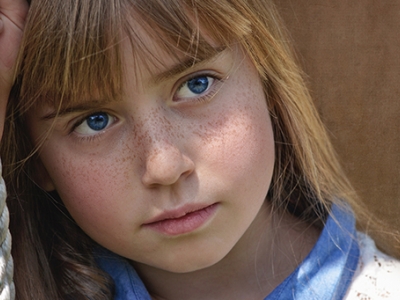
‘Parental Guidance’ and finding the right balance
Dr Yixin Jiang Xu helps Christians to balance authority and grace.
In November, I joined the thousands of Aussies who watched Parental Guidance, a reality TV series aired on Channel 9 that put ten Australian families with different parenting styles through various challenges. The show was co-hosted by Dr Justin Coulson, who is a well-respected Australian parenting expert. While the idea of comparing parenting styles—and reflecting on our own—feels uncomfortable, I think the show served as a springboard for important discussions on parenting.
One recurring theme was how strict or controlling parents are towards their children. There were a number of parents who displayed relatively more control, namely, the ‘strict’ (represented by Christian parents Andrew and Miriam), ‘tiger’ (also represented by Christians Kevin and Debbie), ‘routine’ and ‘disciplined’ parenting styles. While Christian parents differ in their parenting approach and we should certainly avoid generalising, watching the show made me reflect on why Christian parenting sometimes borders on being overly strict or authoritarian.
Parental authority: a fine balance
On the show, Dr Coulson said that ‘strict parents are all about control’. As Christian parents, we know that we have a God-given authority over our children, as a way to teach them obedience—and ultimately, submission to God. This is good, loving and necessary.
Children, obey your parents in the Lord, for this is right. (Ephesians 6:1)
However, even with the best intentions, parental authority can sometimes become the dominant focus for Christian parents to the detriment of our children’s other fundamental needs—such as connection and love, autonomy and grace. This can actually undermine our long-term goal of raising loving, God-fearing children.
Do we fear losing control?
Overly strict or authoritarian parenting can manifest as too much control over aspects of our children’s lives. This may involve having many rules (including lots of ‘nos’ and ‘shoulds’) and even a degree of micromanaging.
For example, in the show’s ‘Back Seat Driver’ challenge, where the children were in charge of directing the parents, the ‘strict’ and ‘tiger’ parents struggled to let go and trust their children to read the map on their own (and perhaps, even make mistakes).
It is helpful to pause and reflect on our motivation. As parents, often we fear losing control over small and big things. But is our need for control (and at times, convenience) stopping us from letting our children try (and fail) in order to learn?
The challenge is to allow our children appropriate levels of autonomy and independence that support their development of personhood, while at the same time remaining in charge. Perhaps this is where we can learn from the ‘free range’ parents on the show—to allow our children freedom where possible, but take charge when necessary.
Do we have rigid expectations?
Strict control can also manifest as having rigid expectations. Some examples are expecting ideal behaviour beyond what is reasonable or developmentally appropriate (such as expecting a toddler to sit quietly through a church service or not interrupt adult conversations); giving very prescriptive instructions (such as the elaborate rules that Andrew gave for playing with water guns in Episode 8) and preferring highly structured, adult-led activities over more open, child-led exploration.
When our children fail to meet our expectations, rather than immediately assuming that they're being deliberately sinful, let's consider the likely possibility that they are simply being childish, acting according to their stage of development. In that case, what children need is not corrective discipline but patient teaching and guidance.
In one poignant moment, the ‘Fine Dining’ challenge, Andrew and Miriam pressured their daughter Grace to eat the escargots. This literally ended in tears when the sensibilities of the child were ignored. It’s worthwhile to reflect on whether at times we are too focused on the rules and/or outcome (‘right’ behaviour) and we forget the child before us—a child whose greater needs in that moment may be connection, understanding and respect.
When imposing our authority as parents, let us remain sensitive to our child’s needs. We should heed the warning from Colossians 3:21: ‘Fathers, do not embitter your children, or they will become discouraged’.
Do our children comply out of fear?
Authoritarian or strict parenting styles have been linked to a range of punitive disciplinary approaches, including smacking (a controversial topic raised in Episode 1), punishments and rewards and time outs. However, research suggests that punitive approaches actually result in children who are less well-behaved in the long run, and, for techniques such as smacking, can actually be harmful.
The issue with these punitive approaches is that they use fear as a means of controlling children’s behaviour. As Dr Coulson remarked on the show, ‘We don’t need to hurt kids to teach them a lesson. What we want is to help them become a better person’. We need to ask ourselves: do our children only comply out of fear of our judgment and punishment?
The overuse of punitive measures over time will also erode the level of trust in our relationship with our children. As children become more independent, they will only seek our guidance and help if we have invested in a relationship where they trust and respect us and know that we love them.
Can our children think for themselves?
In Episode 3 of the show, the families were put through the ‘Chocolate Temptation’ challenge. This classic psychology experiment tests a child’s self-control to resist eating lollies placed in front of them while unsupervised. Interestingly it was the children of the parents who followed more strict, rule-based approaches who disobeyed instructions. Worryingly, these same children were also the ones tempted to follow a stranger at a playground in another challenge.
The question here is that once ‘chains’ are off, will children be able to think for themselves and choose the values we have tried to instil in them?
As we parent, we need to keep the bigger picture in mind. We want our children to love God, and not just be ‘obedient’, well-behaved Christian kids. The goal of Christian parenting is not merely obedience and compliance, but instructing our children in truth, passing on our values and our faith. We do this primarily through discipleship—modelling, encouraging, talking, teaching and practising—in the context of a loving relationship, and not via punitive means.
A Christian parenting style: grace and humility
The gospel serves as a beautiful model for parenting. Just as God created a new heart within us so that we may worship, love and obey him, our children also need a transformation of their hearts:
I will give you a new heart and put a new spirit in you; I will remove from you your heart of stone and give you a heart of flesh. And I will put my Spirit in you and move you to follow my decrees and be careful to keep my laws. (Ezekiel 36:26–27)
If our parental authority drives us to be works-based, demanding merely obedience and compliance, we will fail to change our children’s hearts. Instead, our parenting style needs to be based on grace. May we use our parental authority to lovingly shepherd and instruct our children, and help them submit to us—and to God—with their hearts. As Christian parents who have had our own hearts transformed, we are capable of showing incredible love and grace to our children.
What I learned from Parental Guidance is that parenting is one of the hardest jobs of all; we all share great hopes and fears for our kids. Perhaps this is the best parenting style of all: a parent who doesn’t have all the answers but who is humble enough to learn and grow, who prayerfully seeks wisdom and relies on God’s grace every step of the way.
Read more from Dr Justin Coulson about how to discipline without punishment.
---
Dr Yixin Jiang Xu is a stay-at-home mother and has a PhD in psychology. She facilitates a Facebook group Parenting babies and toddlers, where she provides parenting resources and webinars. She and her family attend St Paul's Anglican Church, Carlingford.
For more articles from Growing Faith, subscribe to our monthly e-newsletter.
To hear about the latest books and resources from Youthworks Media, subscribe here.








